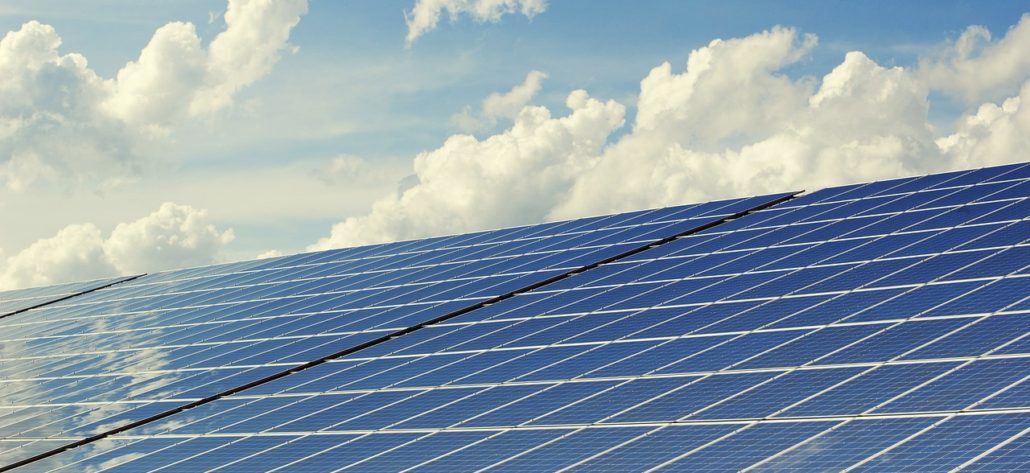OPINIONS: Let’s move as quickly as possible to renewable energy
 COMMUNITY COMMENTARY
COMMUNITY COMMENTARY
by David Jenney
Vassalboro resident
Vassalboro will have a ballot item in November asking residents if they would like a 180-day, with conditions, moratorium on commercial solar arrays. I urge fellow residents of Vassalboro to vote no on the moratorium.
1.) Climate Impact
To me the one of the biggest and most profound issues facing us as residents of Vassalboro, the state of Maine and the world as a whole is Climate Change/Global warming. One of the ways to slow down the pace of this change (in my opinion) is to move as quickly as possible to renewable energy sources which do not pollute in their operation and do not contribute to an increase in carbon dioxide emissions. We are already way too late to address this problem as a species. To me postponing commercial solar array development in Vassalboro is similar to Nero fiddling while Rome was burning. The world is on fire – literally and figuratively. I think sometimes we don’t understand the urgency of this issue due to it at times not being directly in our face.
2.) Inconsistent regulation
Of course there are issues related to where the “best” place is to site commercial solar arrays as well as what to do with them at the end of their life. I would point out the same issue exists for any source of energy production – oil, wood, wind, natural gas, coal, etc… To me placing a moratorium on commercial solar arrays in Vassalboro is “having the perfect be the enemy of the good.” Our current standards for where to place them and how to deal with their waste when they reach the end of their useful life certainly can be improved. However, a moratorium on commercial solar arrays in order to have time to create some type of ordinance to address those issues is similar to telling a fire to stop burning, because we don’t have the perfect hose.
We don’t have town ordinances regulating gravel pits, or other extractive mineral operations. We don’t have town ordinances on the placement of gas pipelines, we don’t have ordinances on the placement of cell phone towers, power lines, phone lines, wind turbines, trailer parks, so what’s so special about commercial solar arrays? Please note that I am not ignoring state and federal regulations – just pointing out that we do not have local ordinances related to any of those.
So what’s so different about commercial solar arrays? My best guess is that now people can actually see them, and some people find them unattractive. That’s about the only thing I can think of that is really different. We are so used to seeing telephone poles, power lines, etc., that we almost don’t realize that they are there. With new commercial solar arrays they are often near roads. This makes sense because they are then close to power lines where they can send the electricity that they produce. Only one relatively smaill commercial solar array has been built in Vassalboro. That is the one on Main Street. In reviewing planning board minutes since 2020, it appears that about four to five additional projects have been approved. None of them is in operation, or have starting being built.
3.) Not in my backyard (NIMBY)
I’m guessing that people here in Vassalboro are reacting to something new that is a change which they instinctively don’t like. When I see commercial solar arrays, I see hope and progress. It’s so easy to think that gas which we use for our vehicles as coming from a gas station, because we don’t make gasoline in Maine. Or we may think of heating oil as something that comes from trucks (heating oil is the biggest energy source of winter time heating in Maine) rather than a fracking operation elsewhere in the United States, or a drilling operation in any part of the world.
We all drive or use vehicles that use oil and gas. We are all guilty of contributing to climate change and global warming, but when we are presented with a choice to be part of the solution, which commercial solar arrays are part of, we get upset. I think it’s because we can see the source of the electricity, while we can’t see it with other electricity sources.
We can often engage in black and white thinking – such as all our Maine farmlands are going to be converted to solar arrays, which is utter nonsense. I have yet to see a commercial solar array placed in Vassalboro take over a farm. I have seen a coexistence of a commercial solar array and farm in China at the Three Level Farm. A commercial (community) solar array was placed on the other side of an active farm. The commercial solar arrays that I have seen in Augusta and Waterville (and it’s quite possible I’ve missed some), have been placed on vacant land that wasn’t being used for farming.
4.) Regulating what individuals can and can’t do with their land, without a comprehensive plan
For the most part I do not want the town to make it more difficult for relatively large land owners in Vassalboro to be able to choose what they want to do or not do with their land, especially as it relates to commercial solar arrays. I own about 140-150 acres of land. I like to believe that I am a good steward of the land, the vast majority of it is in tree growth with a forest management plan. I have two hay fields that are used by my neighbor and a wild blueberry field that is rarely used for picking blueberries. If the town decides to say what large land owners can or cannot do with their land, have it done in a planned manner, rather then a reactionary one.
As a town we do not have a comprehensive plan or zoning. To me trying to define where commercial solar arrays can be placed is a backwards approach to zoning. If we are going to pick and choose how we go about deciding on how land is going to be used, then do it right. Look at the town as a whole, not as bits and pieces.
5.) Protecting our Natural Environment
I think our main responsibility in terms of the natural environment is to focus on air, land, soil and water – all of which are impacted by climate change and global warming. I think while we might like some type of regulation placed on commercial solar arrays, that commercial solar arrays be recognized for the positives that they provide for Vassalboro. The regulation/ordinance should not impede the implementation of new commercial solar arrays. I don’t see any compelling need to implement a moratorium on commercial solar arrays as there are so few (if any) active projects in Vassalboro, and I will oppose the moratorium related to commercial solar array development in Vassalboro.
Responsible journalism is hard work!
It is also expensive!
If you enjoy reading The Town Line and the good news we bring you each week, would you consider a donation to help us continue the work we’re doing?
The Town Line is a 501(c)(3) nonprofit private foundation, and all donations are tax deductible under the Internal Revenue Service code.
To help, please visit our online donation page or mail a check payable to The Town Line, PO Box 89, South China, ME 04358. Your contribution is appreciated!





Did you ever consider that maybe people are skeptical of the realities with solar? The mining for the elements that go within the panels and the ethical concerns with it- not to mention concerns over the environmental impact of such mining, the production of the panels (predominantly in China and reports indicate that forced labor is being used, concerns over the eventual disposal of such panels and what that will look like or what potential environmental impact it will cause, etc.
If you recall, wind farms were the renewable energy source pushed heavily on us within the last two decades, now we’re being told that living within a certain range of wind turbines is linked to mental and cognitive issues, presumably from the near constant hum of the spinning blades. It was an unforseen harm.
Also, throughout my lifetime it seemed like we were concerned with tree reduction and how mature trees were essential to our air quality and eco systems- yet our solar farms are often clearing trees for panel installation and space around the panels in order to allow more unfiltered solar access to the panels. Between clearing trees for roadways, homes, business buildings, parking lots, etc. and now panels, how long until we’re no longer allowed to cut trees for goods or to build because we have created a new issue or worsened what we previously considered to be an issue?
I think many people’s reservations are concerns over the long term consequences and costs that we have yet to truly see in a large scale. We may think we know, but do we really?